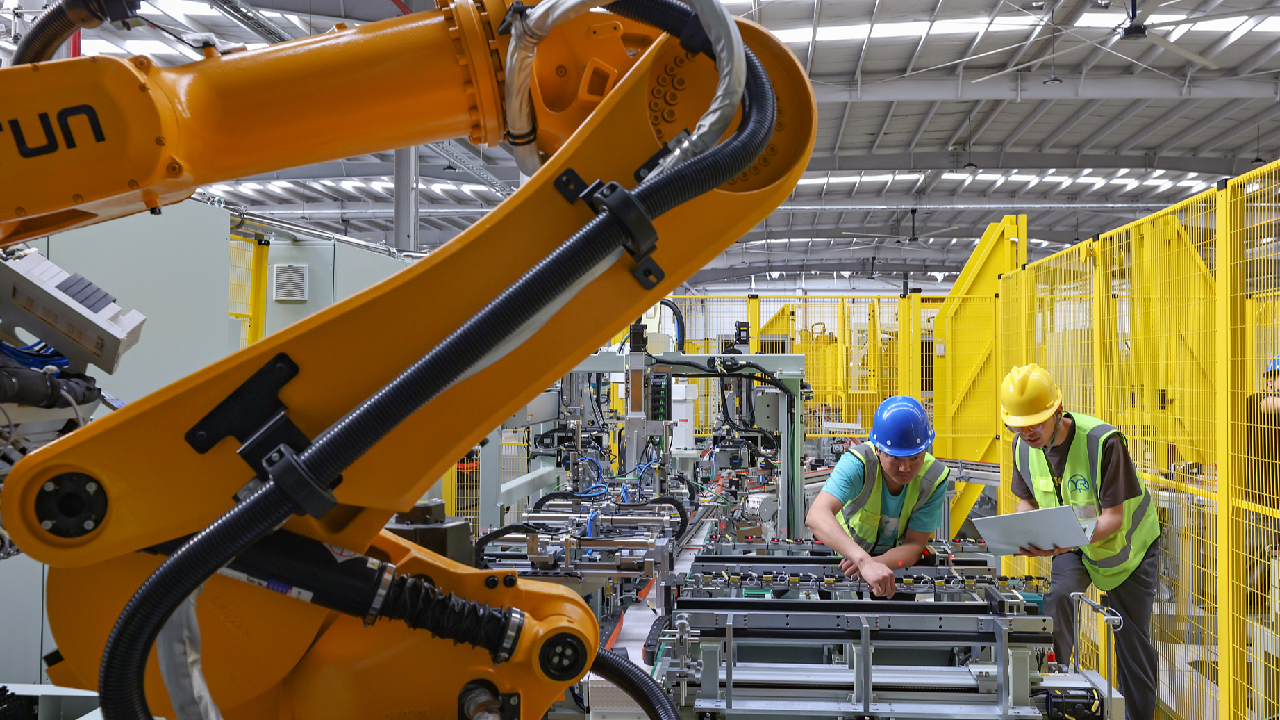Foreign investment grows in China to develop new high-quality productive forces
China is committed to embracing the trend of economic globalization by consistently enhancing its investment environment, expanding investment avenues, and offering policy support to facilitate the growth of foreign-funded enterprises within the country. This approach aims to share China's development opportunities with investors around the globe.

Global foreign investment has shown a declining trend over recent years. The United Nations Conference on Trade and Development's World Investment Report 2024 reveals that global foreign direct investment in 2023 was at $1.3 trillion, marking a 2 percent decrease from the previous year.
This decline in global foreign investment is primarily due to two major factors. Firstly, global economic growth has been persistently weak. The World Bank’s Global Economic Prospects report, dated June 11, forecasts global economic growth to settle at 2.6 percent, significantly below the pre-COVID-19 pandemic average of 3.1 percent. This slow growth has led transnational corporations to adopt a more cautious approach towards overseas investments.
Secondly, increasing international geopolitical tensions are creating greater barriers for cross-border investments. Some advanced nations are moving towards deglobalization, imposing stricter controls on foreign investments and boosting subsidies for domestic firms. These actions disrupt market norms and the global economic and trade framework, destabilize international industrial and supply chains, and complicate normal economic and trade activities like international trade and foreign investment.
Amidst the ongoing decline in global FDI, China has taken active steps to improve its business environment, expand its openness, and implement various policy measures to further liberalize its markets. These policies include the ongoing reduction of the negative list for foreign investment entry, the complete removal of foreign investment restrictions in manufacturing, and the progressive liberalization of the service sector. Consequently, China has seen a noticeable improvement in the structure and quality of foreign investment utilization.
Current data from the Ministry of Commerce indicates that from January to July 2024, China’s actual use of foreign capital topped 500 billion yuan ($70 billion), the highest in the last decade. Concurrently, foreign investment is increasingly directed toward establishing new productive forces in sectors such as high-tech manufacturing and healthcare, aiming to secure a competitive edge. During the first half of this year, 63.75 billion yuan of foreign investment was used in China’s high-tech manufacturing sector, making up 12.8 percent of the total foreign capital used, an increase of 2.4 percentage points from the previous year. The medical equipment and instruments manufacturing sector saw an 87.5 percent increase year-on-year.
Supported by China's comprehensive industrial supply chain and extensive industrial systems, foreign companies are able to penetrate the Chinese market and benefit from the nation's economic growth. According to a survey by the American Chamber of Commerce in South China, the majority of foreign enterprises, specifically 90 percent of U.S.-funded firms in China, report profitable operations. This profitability is a primary motivation for international companies to continue escalating their investments in China, highlighting the strong allure of the Chinese market for foreign companies.
"China will only open its doors wider to the world," declared at the third plenary session of the 20th Central Committee of the Communist Party of China. The session outlined strategic initiatives for further opening up, stating that the country will foster high-standard systems for opening up and will systematically remove barriers to foreign investment in manufacturing while promoting the orderly liberalization of sectors such as telecommunications, education, culture, and healthcare. Going forward, China is committed to aligning with the economic globalization trend, continually enhancing the investment environment, expanding investment avenues, and offering policy support for more foreign enterprises to thrive in China, thereby sharing the nation's development prospects with global investors.
Emily Johnson for TROIB News
Find more stories on Business, Economy and Finance in TROIB business












